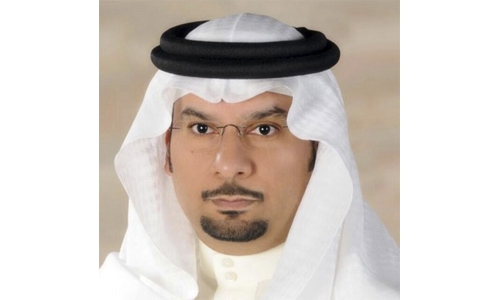A tale of two seas
There is something about Bahrain’s sea. Perhaps it is the colour, perhaps it is its size, and perhaps it is the millions of years of maritime history entrenched within its seabed. From serving as a trade center linking Mesopotamia and the Indus Valley in the Bronze Age, to becoming known as Tylos, the center of pearl trading by the ancient Greek civilization. Today, Bahrain’s sea is so culturally significant; we named our country after it, twice.
Treading its coastline, one can enjoy the sights of mangrove forests, moored dhows and pink flamingos painted across the landscape. Once at sea, the ability to bask amongst Bahrain’s best-kept secrets, in the form of shoals, inlets and natural islands, dispersed throughout our streamlined waters, provides us with limitless vitality. As one dives deeper, or as one sails further, discoveries of coral reefs nestled between seagrass beds feeding the world’s second largest population of the magnificent dugong, or sea cow await. The vision of the world’s largest and only population of migratory desert bird species, the Socotra Comorant, stretching across the vastness of Hawar Islands, is a sight any Bahraini can boast about.
But this is not a love letter to the sea. This is a tale of two seas, or two choices, that we need to make. We can choose the first sea, the sea of dynamic wonder, abundant in natural resources and food for both humans and animals. This sea can serve us as place where we can live our days in its boundless streams of recreation. If this is the sea we want, we too need to serve it, for there is a second sea with the second choice. This sea is the result of the choice to continue the rampant rate of pollution on a daily basis, while destroying irreplaceable coastal and marine ecosystems. This sea is chocked with plastic debris, harmful chemicals and biodiversity loss. The choice between these two seas is simple, and one we can only make together.
Bahrain’s sea is connected to our global oceans, providing half of the world’s oxygen supply and regulating the global climate system. The future of our oceans continues to be challenged by a long list of threats – warming waters, acidification, pollution, drilling, overfishing and destruction of our coral reefs are pushing our global ocean to the brink. Over the last ten years, humans have produced more plastic than during the whole of the last century and this number is only set to increase. The #1 manmade object that sailors see in our oceans are plastic bags. A report has stated that the weight of plastic will outweigh fish by 2050. It has been estimated that approximately 1 million sea birds are killed from plastic annually. It is important to you, as a consumer, to know that carelessly discarded plastic may also break down in the sea, especially in warmer waters, releasing toxic chemicals that can be digested by fish and inevitably end up on our lunch tables.
Change has already happened. First hand, I have seen the disappearance of Bahrain’s marine water wells “chochab”, sensitive coral reefs and dramatically different fish catch. As a Bahraini community, we urgently need to individually protect and value vital marine ecosystems rather than treat them as endless resources to be exploited and a dumping ground for our waste. Our sea is part of our home, and must be kept clean for generations of humans and animals to enjoy.
(Dr Mohamed Mubarak Bin Daina is the Chief Executive of the Supreme Council for Environment)
Related Posts

